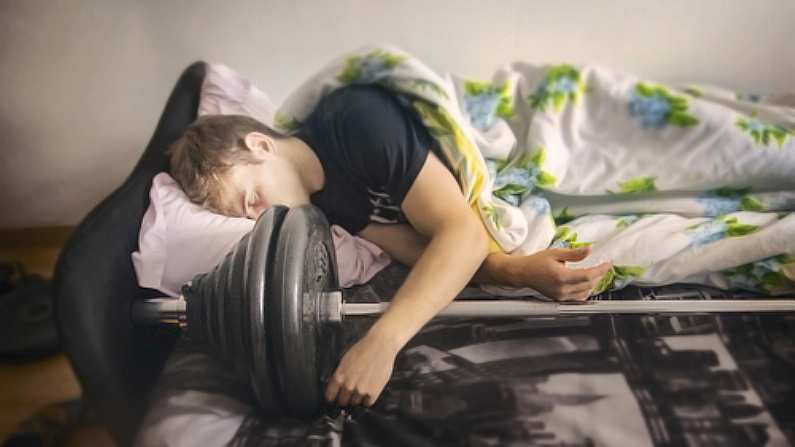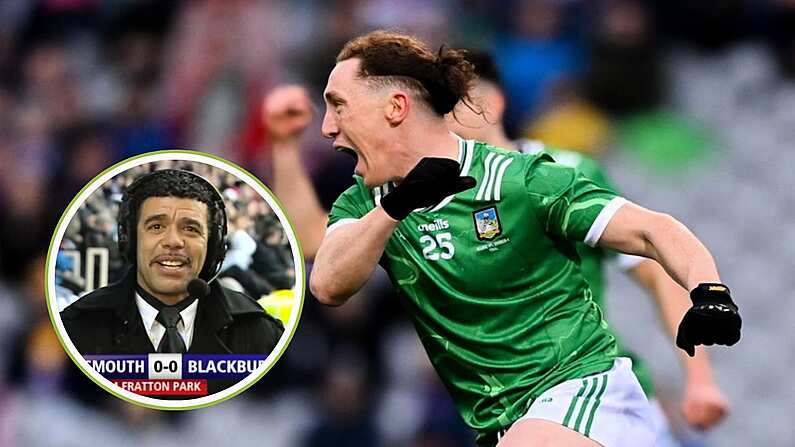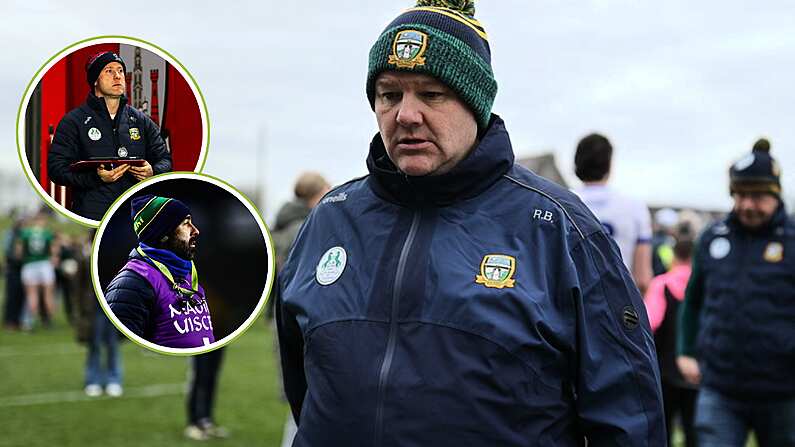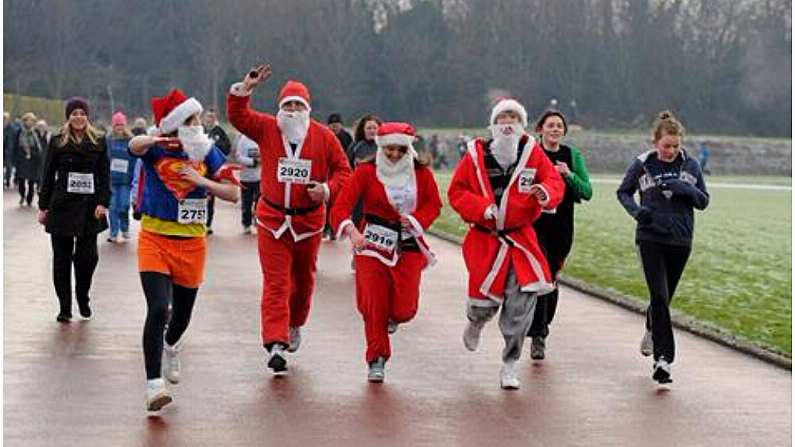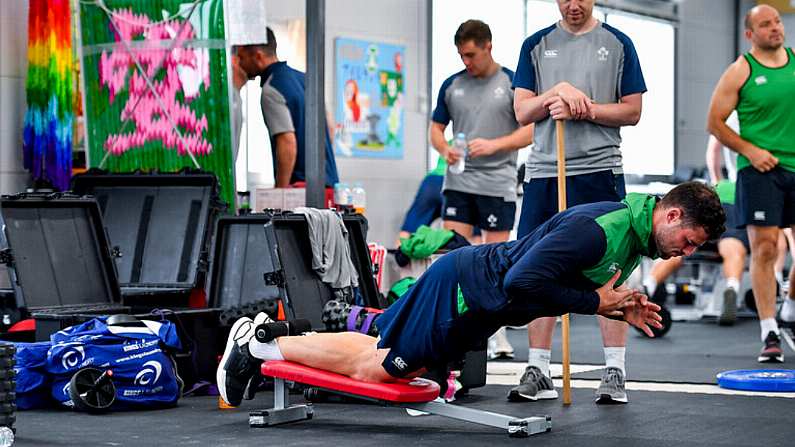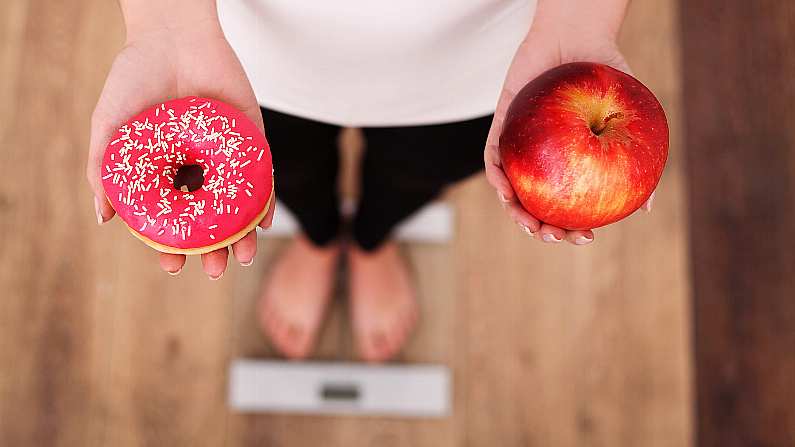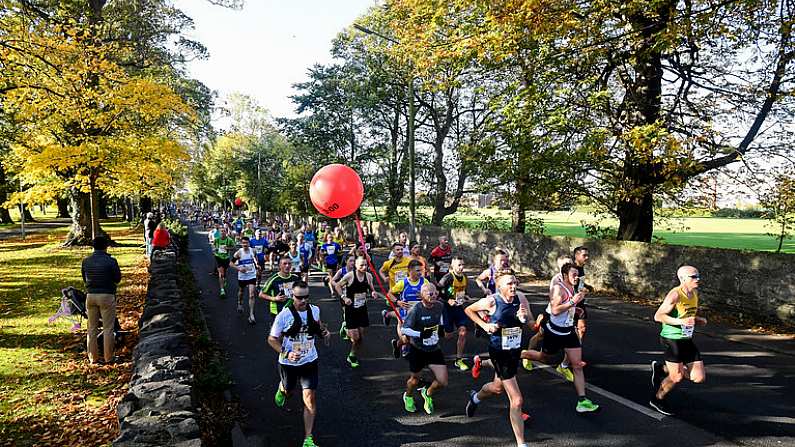This week on Balls.ie, Vickey Nolan, fitness director at West Wood Club in Dun Laohgaire, wrote a column on Balls.ie about the importance of sleep for fitness enthusiasts. If you're serious about making fitness gains, you need your eight hours in the leaba every night. Interestingly, Twitter has surfaced a brilliant thread this week that breaks down exactly why sleep matters for high performance athletes.
American Josh Faga runs a podcast called Just Kickin' It dedicated to football coaching and performance. This week he was joined by Dr Steven Lockley of Harvard Medical School's Division of Sleep. Few people are as equipped to speak about the scientific benefits of sleep as Dr Lockley and the information he provides about sleep and fitness - especially around the risks of morning exercise - are noteworthy.
If you don't have time to listen to the entire podcast, Faga summarised the most interesting talking points from the podcast on the Twitter thread below.
Sleep: The most overlooked and undervalued area of performance enhancement.
From my recent discussion with Dr. Steven Lockley of Harvard Medical School's Division of Sleep and Circadian Disorders
(Thread)
👇— Josh Faga (@joshfaga) June 3, 2019
Sleep Inertia is the groggy feeling we all experience shortly after waking up.
This is normal and takes 2-4 hours to fully go away.
But, you don't want to be doing "key" things within 1-2 hours of waking up - Like training!— Josh Faga (@joshfaga) June 3, 2019
Steven mentioned a school that changed their school start times from 8AM to 10AM back to 8AM.
During the period of 10AM start times
- Exam results improved
- Sick days decreased
During the period of 8AM start times
- Exam results decreased
- Sick days increased— Josh Faga (@joshfaga) June 3, 2019
Most athletes are under 30 years old.
Most people under 30 years old are Night Owls.
Therefore, most athletes are Night Owls.
With this being the case, why do so many sports team's train in the morning?— Josh Faga (@joshfaga) June 3, 2019
Deep Sleep is generally responsible for restoration and recovery and occurs in the beginning of the night
REM Sleep is generally responsible for memory formation and learning and occurs towards the 2nd half of the night.— Josh Faga (@joshfaga) June 3, 2019
The problem is that modern life doesn't take this into account when scheduling things like work, training, school, etc.
Training early in the morning is basically guaranteeing sleep deprivation and an accumulation of sleep debt.— Josh Faga (@joshfaga) June 3, 2019
In general, people have a biological clock that fits into two main categories:
1. Early Risers (Larks) - faster biological clock
2. Night Owls (Owl's) - slower biological clock— Josh Faga (@joshfaga) June 3, 2019
Sleep duration is an obvious problem.
As Steven Lockley puts it, "There is no such thing as too much sleep. More sleep is a good thing. Sleeping in is a good thing."— Josh Faga (@joshfaga) June 3, 2019
If your athletes consistently take naps, that is indicative of a poorly designed schedule.
"If you've had enough sleep during the night, then you shouldn't even be able to nap. The fact that so many athletes rely on naps is a sign that they are consistently sleep deprived."— Josh Faga (@joshfaga) June 3, 2019
Sleep is arguably more important than all other training parameters and considerations like load, intensity, density, volume, exercise selection, and diet.
And yet, it is has been relegated to an after thought. Something to overcome, something that 'weak' people do.— Josh Faga (@joshfaga) June 3, 2019
Ignoring how sleep fits into our training schedule is a wasted opportunity to improve performance with very little effort. pic.twitter.com/q6iqnVG7js
— Josh Faga (@joshfaga) June 3, 2019
These thoughts will be especially interesting to anybody who's doing religious workouts before 8am every day. You can listen to the entire podcast below for more context.

